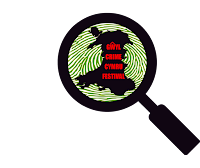Thanks for giving me the chance to reach those who follow you with some wonderful news. I suspect most folks who’ve met me know that I’m Welsh, and my WISE Enquiries Agency Mysteries are all set in Wales. Also, my Cait Morgan Mysteries feature a Welshwoman living in Canada (just like me) who travels the world solving puzzling, Golden Age-shaped whodunits. So, yes, I certainly put my Welshness, and Wales, front and center in my books.
I’m pleased to say that it’s finally becoming easier for lovers of crime fiction to “visit Wales” as a setting for their favorite type of book – whatever sub-genre they might prefer. However, when it comes to getting the word out about Welsh crime writers, we’ve a long way to go. Enter Crime Cymru, a cooperative of Welsh crime writers. If you’d like to find out more about crime writing by Welsh authors, or crime books set in Wales…or meet many other internationally renowned crime writers there’s a treat in store, now you have a great opportunity to do so.
From April 17-19 and April 22-24, 2024, Wales’s only dedicated crime fiction festival is returning for its fourth year of murder, mystery and mayhem, fully online and absolutely FREE. Tickets are required, but there’s no need to pay a penny! The full schedule is here: https://gwylcrimecymrufestival.co.uk/pif/
This year’s line-up showcases the cream of the crime writing world, including Elly Griffiths, Sam Blake, John Banville, Abir Mukherjee, Vaseem Kahn, Sarah Ward, Simon McCleave, and Alis Hawkins. I also have the honor of appearing on a panel. We’ll all be chatting about our work, with settings ranging from the heartlands of Wales to the canals of Venice; from the narrowboats of the UK to the rugged shores of Shetland; from the vast national parks of North America to a few imaginary worlds, with fascinating historical eras in between.
In addition to sessions on psychological thrillers, police procedurals, historical fiction, cozies, and much more, the festival program includes panels on true crime and writing crime for teenagers.
All that being said, if you’re not able to join us online, you might enjoy “visiting Wales” with my four softly poached female PIs, in THE CASE OF THE BEREAVED BUTLER, which will be published on March 18th.
***
You can find out more about Cathy Ace and her work here: http://www.cathyace.com/
Or you can stalk her on social media:
Cathy Ace Twitter: https://twitter.com/AceCathy
Cathy Ace Instagram: https://www.instagram.com/cathyace1/






